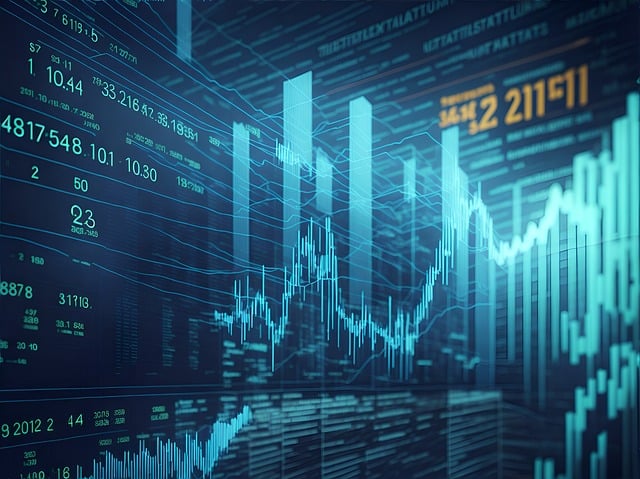Artificial Intelligence in Cryptocurrency Trading: A Comprehensive Guide
The cryptocurrency market has gained immense popularity over the last decade, attracting investors, traders, and technologists eager to capitalize on its volatility and potential for hefty returns. With the advent of artificial intelligence (AI), the landscape of crypto trading has undergone a revolutionary transformation. This article delves into how AI is reshaping the trading landscape, its benefits and limitations, various strategies employed, and the future prospects of AI in cryptocurrency trading.

Understanding AI in Cryptocurrency Trading
Artificial Intelligence, in the context of cryptocurrency trading, refers to algorithms and machine learning models that analyze market data, predict price movements, and automate trading decisions. The integration of AI enables traders to process vast amounts of data at incredible speeds, something that would be nearly impossible for humans. In my opinion, this capability fundamentally changes the game, offering a level of precision and efficiency previously unattainable.
The Basics: How AI Works in Crypto Trading
AI in crypto trading primarily operates through:
- Data Collection: AI systems gather data from various sources including social media trends, news articles, historical price data, and trading volume statistics.
- Data Analysis: Applying complex algorithms, AI analyzes and identifies patterns and correlations in the data, which helps in predicting future price movements.
- Decision-Making: Based on the analysis, AI can execute trades autonomously, significantly reducing the time taken to make strategic moves in the market.
The speed and accuracy of AI-driven trading systems allow for a more agile response to market fluctuations. However, it’s crucial for traders to understand these mechanisms to trust and effectively utilize AI tools.
Advantages of AI in Cryptocurrency Trading
Incorporating AI into trading strategies presents several notable benefits, which, in my opinion, could markedly improve success rates for both novice and seasoned traders.
1. Enhanced Decision Making
AI systems analyze data more efficiently than any human can. They can consider multiple variables simultaneously and arrive at decisions that minimize human errors, such as emotional trading or cognitive biases. For example, a trader might hold onto a failing asset due to attachment, while an AI would recognize it as a lost cause based solely on data trends.
2. Increased Efficiency
Once a trading strategy is in place, AI can execute thousands of trades per second, optimizing portfolios at lightning speed. I find it remarkable that such technology can operate 24/7 without fatigue, a clear advantage over human traders who need breaks and suffer from mental fatigue.
3. Predictive Analytics
AI algorithms utilize historical data to forecast future price movements with a level of accuracy that is continually improving. I am particularly fascinated by how much more data AI can analyze compared to a human trader. Predictive analytics can inform a trader about potential price rallies or downturns, enabling proactive rather than reactive strategies.
4. Risk Management
Traders can set risk parameters that AI systems comply with while making trades. The ability to assess risk dynamically allows traders to achieve a more balanced portfolio. Personally, I believe good risk management strategies could protect traders from the notorious volatility of cryptocurrencies.
Challenges and Limitations of AI in Crypto Trading
Despite the upsides, AI-driven trading is not without its challenges. It’s crucial to highlight these limitations for a balanced viewpoint.
1. Market Volatility
The cryptocurrency market is notoriously volatile. AI, while powerful, is not foolproof; sudden market shifts can lead to substantial losses. In my view, the unpredictability of crypto makes it essential for traders to stay informed and not rely solely on AI systems for decision-making.
2. Data Quality
AI’s effectiveness is significantly dependent on high-quality, relevant data. If the data fed into these systems is inaccurate or biased, the outcomes will likely mirror those flaws. This highlights the importance of data integrity and the necessity for ongoing monitoring and adjustments to the AI’s learning algorithms.
3. Complexity of Algorithms
The algorithms that drive AI decision-making can be complex, making it difficult for users to understand the basis of decisions made by these systems. As someone who values transparency in trading, I often wonder whether traders might be making a mistake by blindly following AI suggestions without fully comprehending the underlying logic.

Common AI Trading Strategies in Cryptocurrency
In this section, we'll explore various AI trading strategies that traders can adopt to enhance their trading experience.
1. Sentiment Analysis
By analyzing social media content, news headlines, and market sentiment, AI can gauge the public’s perception of specific cryptocurrencies and adjust strategies accordingly. I believe understanding market sentiment is crucial, especially in a field driven by public speculation and hype.
2. Arbitrage Trading
Arbitrage involves capitalizing on price differences across different exchanges. AI can quickly identify these differences and execute trades nearly instantaneously. This strategy requires less human intervention and could be a safer alternative for those hesitant about market volatility.
3. Algorithmic Trading
Algorithmic trading employs AI to execute trades based on predefined criteria like price movements and trading volume. I appreciate this strategy's precision, as it minimizes emotional bias while maximizing efficiency.
The Future of AI in Cryptocurrency Trading
Looking ahead, the integration of AI in cryptocurrency trading is expected to intensify. As algorithms continue to evolve, their predictive capabilities will likely improve. Additionally, the emergence of quantum computing may revolutionize AI’s processing speeds, making real-time trading analytics more reliable than ever. In my opinion, these advancements could lead to a more stable crypto market over time.
Regulatory Concerns
With the increasing use of AI-driven trading, regulatory bodies will need to consider the implications for market fairness and consumer protection. I believe that appropriate regulatory frameworks and ethical standards must be implemented to ensure that these technologies can be used effectively and responsibly.
Conclusion
In conclusion, the intersection of AI and cryptocurrency trading presents an exciting but complex landscape. While the advantages are undeniable—from enhanced efficiency to powerful predictive analytics—traders must remain vigilant of the potential pitfalls. By understanding both the strengths and weaknesses of AI technologies, individuals can harness their power responsibly and strategically. As AI continues to evolve, I remain hopeful that it will contribute positively to the world of trading, making it accessible and profitable for individuals and institutions alike.